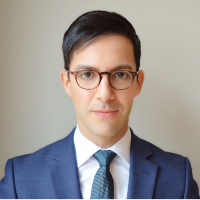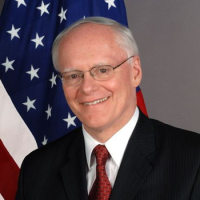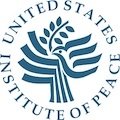Iran’s Pivotal Presidential Election
On June 18, Ebrahim Raisi was elected the next president of Iran in a landslide victory. The hardliner is currently sanctioned by the United States in part due to his role in the mass execution of prisoners in 1988. Raisi will likely be in power when the next supreme leader is selected. Ayatollah Khamenei is now 82. He was president before he was selected as Iran’s second supreme leader, in 1989—a process that created an informal precedent. The election intersects with critical negotiations between Iran and the world’s six major powers over the future of the JCPOA nuclear deal. Raisi will be responsible for setting policy for years to come on foreign relations, including talks with the outside world on its nuclear and missile programs as well as on domestic affairs and the economy, which have been stifled by economic sanctions and the COVID-19 pandemic. This expert panel discussed the election results and the implications for Iran, the Middle East, and the United States.
Selected Quotes
Robin Wright, USIP-Wilson Center Distinguished Fellow
"Hardliners have now consolidated political control in Iran. They hold the presidency, the parliament from elections last year, the judiciary; they control the intelligence community and the military. Iran increasingly looks like a one-party state. At the same time, my favorite expression about Iran is that where there are five Iranians, there are six parties. There are deep divisions among the hardliners. We shouldn't assume that they are going to automatically agree about absolutely everything. The reformist movement, which has gone through cyclical moments that have captured the imagination - under President [Mohammad] Khatami and then under President [Hassan] Rouhani - now appears to have atrophied. With the end of Rouhani's presidency, there is no conspicuous leader to mobilize, inspire or create a sense of the future for a lot of the reformists."
"This [election] set the stage for the succession of the supreme leader, who is now 82. He has ruled since the passing of revolutionary leader Ayatollah Khomeini in 1989. The only precedent we have is when he became supreme leader, he had been president. This sets the stage for a possible inheritance of power for President-elect Raisi. It's not automatic, however. He faces an incredible number of hurdles in restoring economic health, creating up to five million jobs, getting access to Iranian oil assets that have been frozen because of U.S. sanctions abroad."
Ali Vaez, Iran Project Director at International Crisis Group
“Domestically, I think Raisi’s election is really bad news for the Iranian people, because if I’m correct in my analysis that this whole election was more than the presidency and part of the system’s design to consolidate itself before it goes into the transition to the post-Khamenei era, these periods often include purging of opponents and crackdown internally.”
“You can argue [that] a nonbinding commitment by an outgoing Iranian administration doesn’t mean much, but I think what is likely to motivate the Iranians to negotiate [with the United States] is basically the fact that the deep state in Iran—not just the Iranian administration, but the deep state in Iran—has come to terms with two inconvenient truths about the nuclear deal. Number one is the fact that the sanctions relief that was devised in the original agreement is just insufficient for the Iranian economy to be able to trade normally with the outside world… Second, the reality is that the JCPOA is unstable. The Iranians have learned this fact. They know that by 2023 when Congress is supposed to not just suspend but lift the sanctions and the Iranians are supposed to ratify the additional protocol, none of this is likely going to happen and the deal will become unstable again in the run up to our next electoral cycle.”
Suzanne Maloney, Vice President and Director of the Foreign Policy Program at Brookings Institution
“[Reformist movements] haven’t been able to capture elections, and they haven’t been able to actually use that institutional power when they have had it to enact meaningful, sustainable, durable reforms to the political system. They’ve been countered at every point from conservatives who control the unelected system. So, the lack of strategy and the lack of a coherent leadership has really removed any serious claim that they have to success, and we don’t see any alternative movement taking shape in the absence of a serious reform movement.”
“When you have five Iranians—particularly from the Islamic Republic—you have six different points of view. This is a regime that has engaged in fratricidal partisanship really since the outset, and the further that you narrow the insiders to the system, the more vicious the infighting becomes. And I think we see that with the elimination of the Larijani family, with Ali Larijani’s disqualification to run for these elections, this is a major element of the conservative hardline front. The fact that they are no longer part of the system does not in fact mean the system is more consolidated. Because as we know, every time one faction is pushed to the side, they tend to rebound with an effort to undermine those who actually push them out. So I’m less persuaded that we’re going to see less political contention within Iran or a more coherent and decisive leadership.”
Read the full transcript on the Iran Primer
Speakers



Moderator

Former ambassador to Iraq and Turkey, and Special Envoy to the Global Coalition To Defeat ISIS
Hosted By

Middle East Program
The Wilson Center’s Middle East Program serves as a crucial resource for the policymaking community and beyond, providing analyses and research that helps inform US foreign policymaking, stimulates public debate, and expands knowledge about issues in the wider Middle East and North Africa (MENA) region. Read more

